
Aristotelous Square: The Heartbeat of Thessaloniki
Aristotelous Square is the vibrant heart of Thessaloniki, Greece. This iconic square, designed by the French architect Ernest Hébrard in 1918, is an architectural marvel that beautifully blends neoclassical and modern styles. It is a bustling hub of activity, fringed with cafes, restaurants, and shops, making it a perfect spot for people-watching and soaking up the local culture. The square stretches from the waterfront of the Thermaic Gulf to the upper part of the city, offering stunning views of the sea and the surrounding areas. It is a popular gathering place for both locals and tourists, especially during festivals and events. The central location of Aristotelous Square makes it an ideal starting point for exploring the rest of Thessaloniki. From here, you can easily access historical sites, museums, and vibrant markets. One of the highlights of Aristotelous Square is the statue of Aristotle, after whom the square is named. This statue is a popular meeting point and a great photo opportunity. As you wander through the square, you'll notice the impressive surrounding buildings, many of which house luxury hotels and important cultural institutions. Whether you're looking to enjoy a leisurely coffee, indulge in some retail therapy, or simply take in the atmosphere, Aristotelous Square has something for everyone.
Local tips in Aristotelous Square
- Visit early in the morning or late in the evening to avoid crowds and enjoy a more relaxed atmosphere.
- Don't miss the chance to try local delicacies at the nearby cafes and restaurants.
- Wear comfortable walking shoes as the square and surrounding areas are best explored on foot.
- Take a moment to enjoy the sunset from the waterfront for a truly memorable experience.
Aristotelous Square: The Heartbeat of Thessaloniki
Aristotelous Square is the vibrant heart of Thessaloniki, Greece. This iconic square, designed by the French architect Ernest Hébrard in 1918, is an architectural marvel that beautifully blends neoclassical and modern styles. It is a bustling hub of activity, fringed with cafes, restaurants, and shops, making it a perfect spot for people-watching and soaking up the local culture. The square stretches from the waterfront of the Thermaic Gulf to the upper part of the city, offering stunning views of the sea and the surrounding areas. It is a popular gathering place for both locals and tourists, especially during festivals and events. The central location of Aristotelous Square makes it an ideal starting point for exploring the rest of Thessaloniki. From here, you can easily access historical sites, museums, and vibrant markets. One of the highlights of Aristotelous Square is the statue of Aristotle, after whom the square is named. This statue is a popular meeting point and a great photo opportunity. As you wander through the square, you'll notice the impressive surrounding buildings, many of which house luxury hotels and important cultural institutions. Whether you're looking to enjoy a leisurely coffee, indulge in some retail therapy, or simply take in the atmosphere, Aristotelous Square has something for everyone.
Iconic landmarks you can’t miss
Aristotelous Square
Experience the heart of Thessaloniki at Aristotelous Square: a vibrant waterfront hub with stunning architecture and rich cultural significance.

Agia Sofia Square
Discover Agia Sofia Square in Thessaloniki: A historical landmark with stunning Byzantine architecture and vibrant local culture.
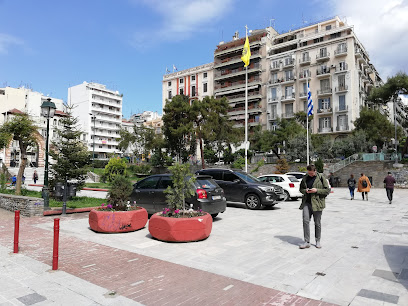
Statue of Eleftherios Venizelos
A tribute to a visionary leader and a landmark in Thessaloniki, embodying Greek history and national pride.
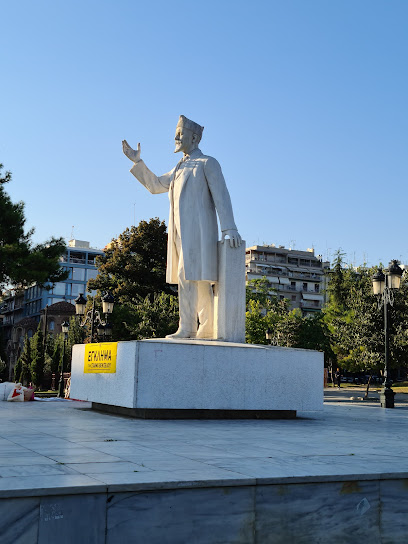
Ancient Agora Square
Explore Thessaloniki's Ancient Agora: a vibrant center of Roman history, culture, and architecture, located in the heart of the city.
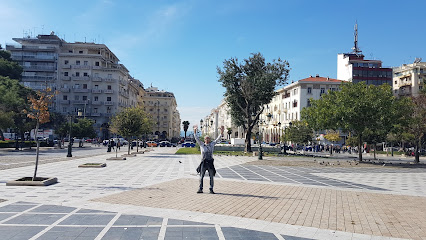
Emilianos Lazaridis Monument
A historical landmark in Thessaloniki honoring Emilianos Lazaridis, a key figure in the Macedonian Struggle, located on vibrant Aristotelous Street.
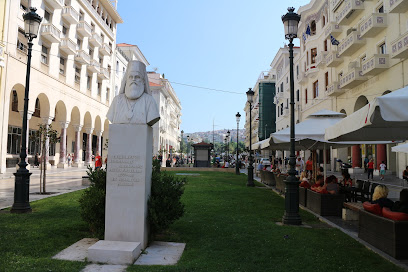
Statue of Aristotle
Honor the great philosopher Aristotle at his statue in Thessaloniki's vibrant Aristotelous Square, a hub of history and culture.
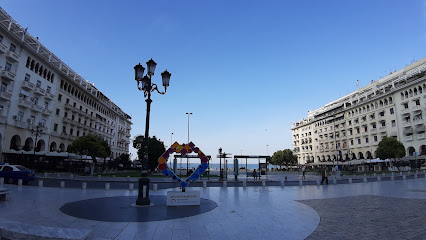
Telloglou House
Discover a rich collection of modern Greek art and artifacts from around the world at Thessaloniki's Telloglou House.
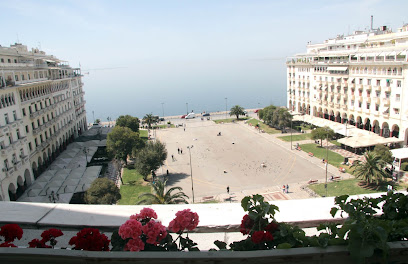
Aristotle Square Clock
A timeless landmark in Thessaloniki's heart, the Aristotle Square Clock marks the spot where history, culture, and vibrant city life converge.
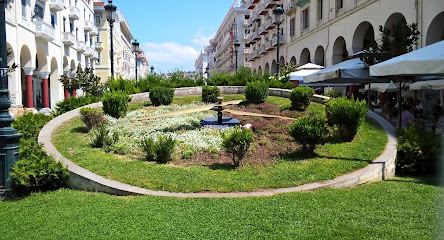
Μέγαρο Πρεβεδουράκη
Explore Μέγαρο Πρεβεδουράκη on Thessaloniki's vibrant Tsimiski Street, a blend of history and modern city life.
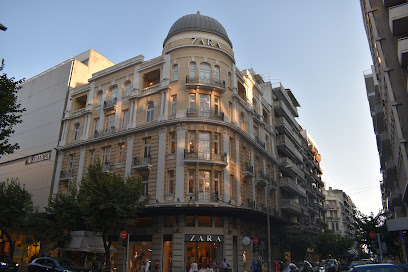
Platia Aristotelous
Experience the grandeur of Thessaloniki at Platia Aristotelous, a vibrant waterfront square blending neoclassical architecture with modern city life.
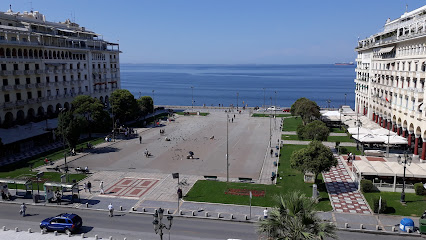
Unmissable attractions to see
White Tower of Thessaloniki
Explore the historic White Tower of Thessaloniki, a museum and landmark offering stunning views and a glimpse into the city's rich heritage.
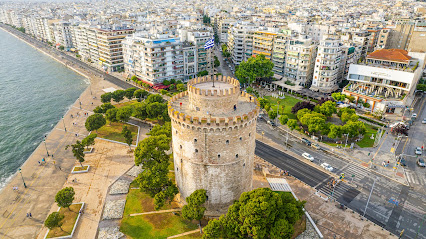
Aristotelous Square
Experience the grandeur of Aristotelous Square in Thessaloniki, a vibrant hub of culture, history, and stunning waterfront views.
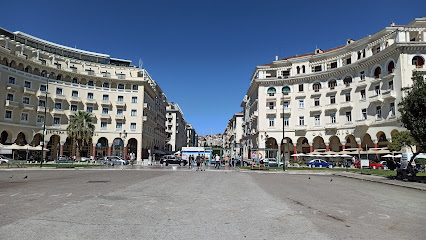
Arch of Galerius
Discover the Arch of Galerius in Thessaloniki: A majestic monument celebrating Roman triumph and a lasting symbol of the city's vibrant history.
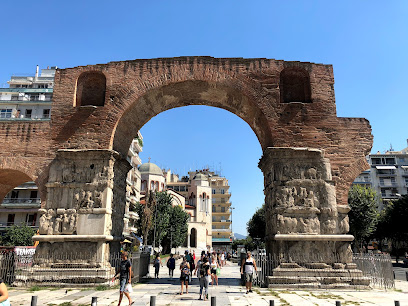
Archaeological Museum of Thessaloniki
Discover Macedonia's ancient past at the Archaeological Museum of Thessaloniki, showcasing artifacts from prehistory to late antiquity.
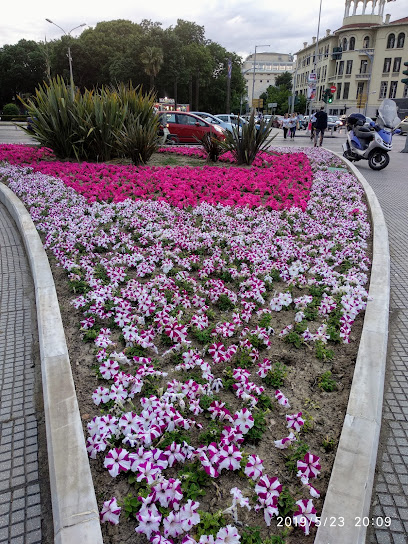
Holy Church of Hagia Sophia
Explore Thessaloniki's Hagia Sophia, a UNESCO World Heritage Site, showcasing Byzantine art, architecture, and a rich, transformative history.
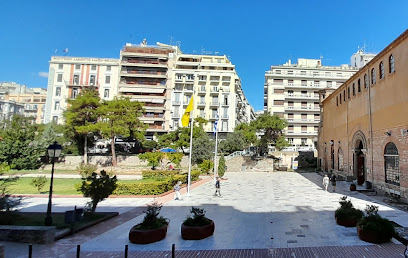
Λουλουδάδικα (Γιαχουντί Χαμάμ - Λουτρό των Εβραίων)
Discover the historical allure of Loukoudaki in Thessaloniki, a must-visit landmark reflecting the city's rich cultural heritage and architectural beauty.
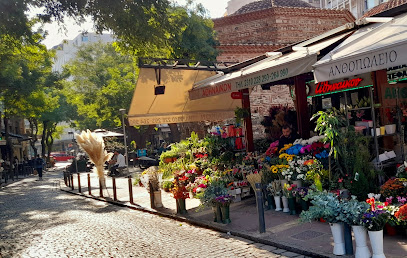
Telloglou House
Discover Greek and international art treasures at the Telloglou Fine Arts Foundation in Thessaloniki, a legacy of passion and philanthropy.
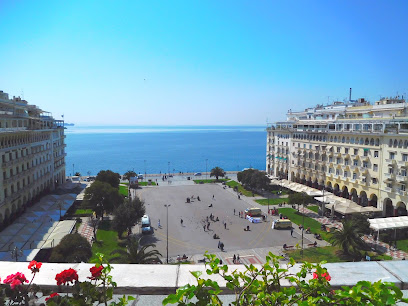
Katárti
Experience the vibrant waterfront of Thessaloniki at Katárti, a hub of culture, stunning views, and authentic Greek flavors on Leoforos Nikis.
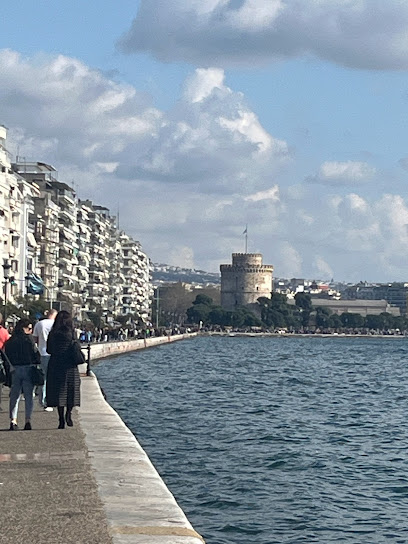
Essential places to dine
Mamalouka
Experience authentic Greek cuisine at Mamalouka in Thessaloniki - where tradition meets taste in a warm and inviting atmosphere.
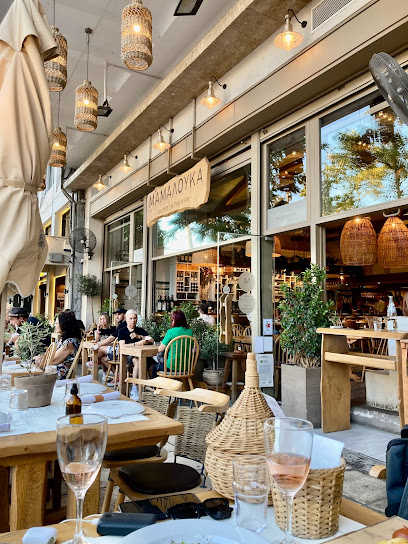
TGI Fridays Αριστοτέλους
Experience authentic American cuisine at TGI Fridays in Thessaloniki's vibrant Aristotelous Square, where flavor meets excitement.
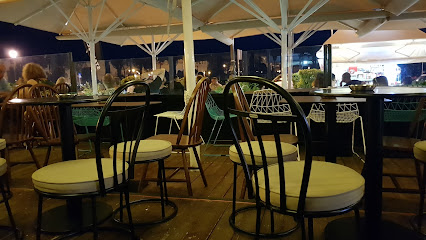
Plaisir
Experience the vibrant flavors of Mediterranean cuisine at Plaisir in Thessaloniki – where every dish tells a story.
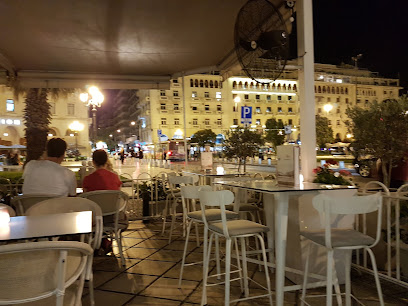
22 Σουβλάκια
Indulge in authentic Greek barbecue at 22 Σουβλάκια in Thessaloniki – where delicious souvlaki meets vibrant city life.
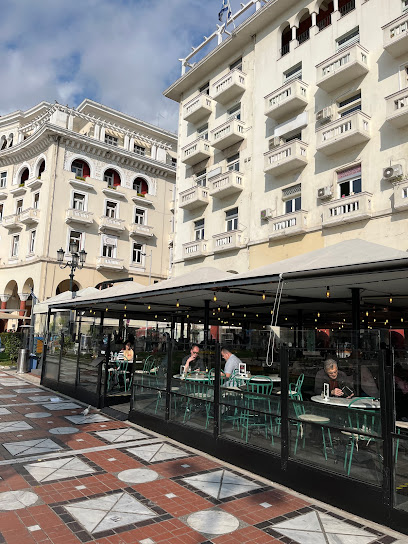
Σουρτουκω μεζεδοπωλειο
Experience authentic Greek flavors at Sourtoukw Mezedopoleio in Thessaloniki, where delightful small plates meet warm hospitality.
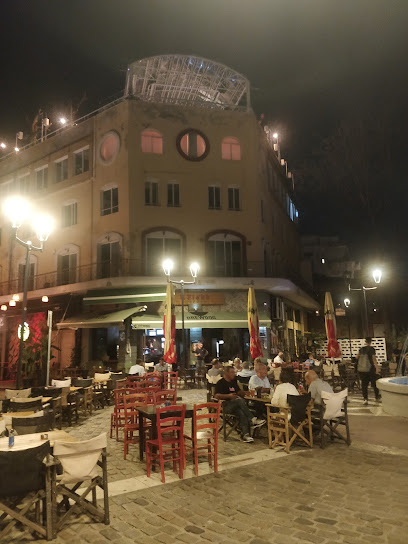
MONO Unique Fresh (Aristotelous)
Savor delightful Mediterranean breakfasts at MONO Unique Fresh in Thessaloniki – where freshness meets flavor in a vibrant setting.
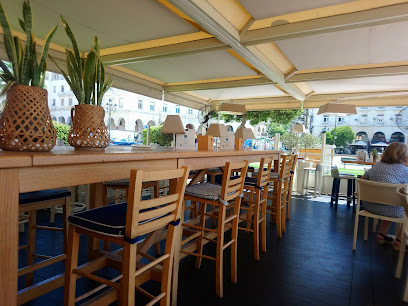
Orizontes Roof Garden
Experience fine dining with breathtaking views at Orizontes Roof Garden in Thessaloniki - where Mediterranean flavors meet stunning cityscapes.
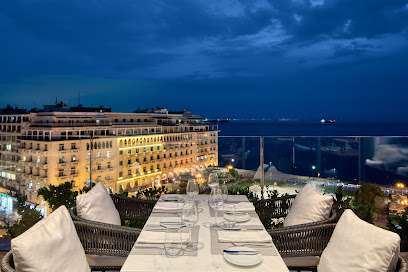
La Piazza
Experience authentic Italian cuisine at La Piazza in Thessaloniki, where every dish tells a story of tradition and flavor.
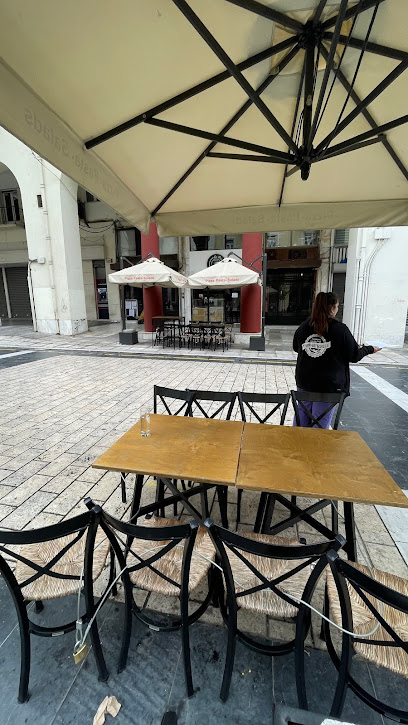
Great Greek Brunch - Savvikos
Experience authentic Greek brunch delights at Great Greek Brunch - Savvikos in Thessaloniki's bustling Aristotelous Square.
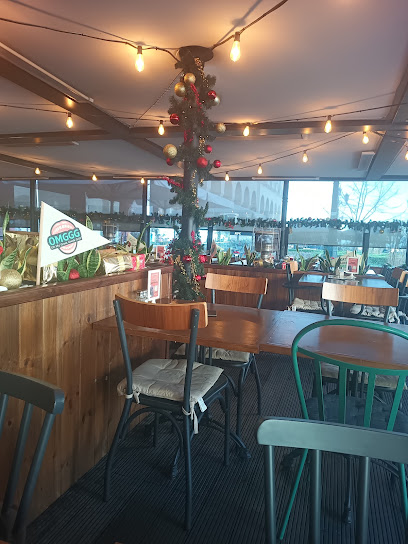
ΕΝΑΡΘΗ ΡΑΜΝΑΛΗΣ ΤΣΙΠΙΡΟΓΛΟΥ
Savor authentic Greek cuisine at ΕΝΑΡΘΗ ΡΑΜΝΑΛΗΣ ΤΣΙΠΙΡΟΓΛΟΥ in Thessaloniki - where tradition meets flavor in every dish.
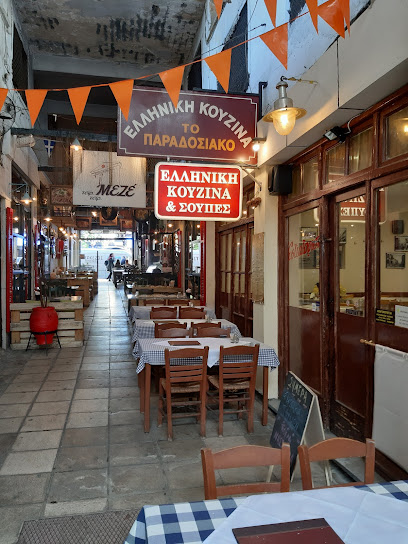
Markets, malls and hidden boutiques
IANOS Aristotelous
Explore IANOS Aristotelous in Thessaloniki: A unique bookstore blending literature, music, and culture in a vibrant setting.
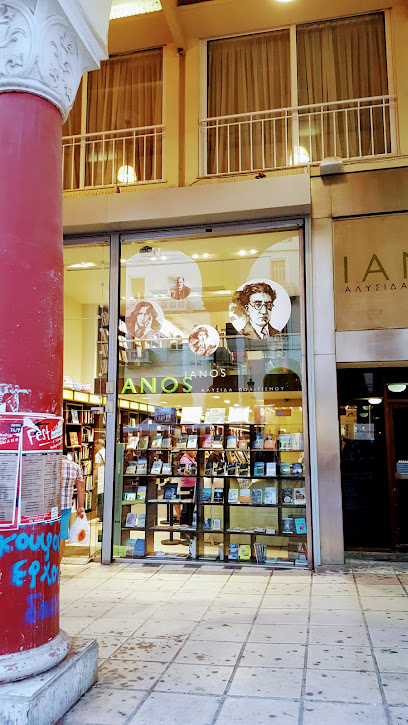
notos Θεσσαλονίκη (Thessaloniki)
Discover the ultimate shopping destination in Thessaloniki at Notos, featuring a wide range of local and international brands in a vibrant atmosphere.
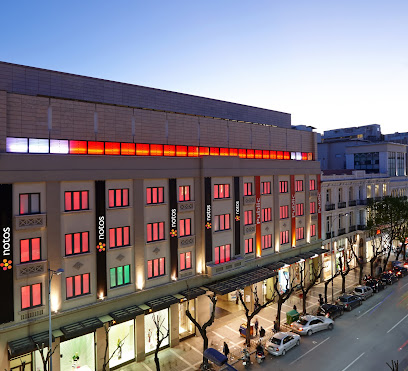
Toys-shop.gr Aristotelous
Discover a magical realm of toys and games at Toys-shop.gr Aristotelous in Thessaloniki, perfect for families and playful spirits alike.

Flying Tiger Copenhagen
Explore the vibrant and quirky offerings of Flying Tiger Copenhagen, your go-to gift shop in Thessaloniki for unique finds and fun surprises.
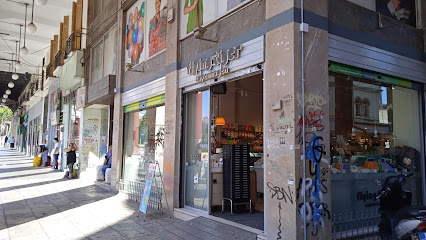
IQOS EXPERIENCE BOUTIQUE STORE ΘΕΣΣΑΛΟΝΙΚΗ
Explore the innovative world of tobacco alternatives at Thessaloniki's IQOS Experience Boutique, where tradition meets modernity in a stylish setting.
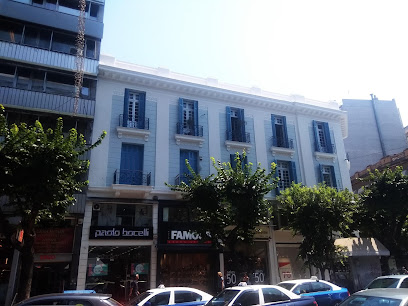
I Love Thessaloniki
Discover unique keepsakes and traditional crafts at I Love Thessaloniki, your go-to souvenir store in the heart of the city.
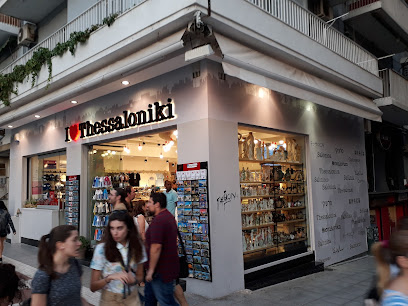
Παρουσίαση Θεσσαλονίκη
Discover unique gifts and home decor in the heart of Thessaloniki, showcasing local craftsmanship and culture in every corner.
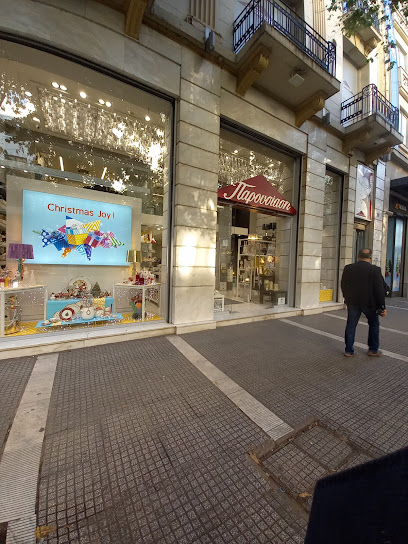
SOUVENIRS
Uncover unique souvenirs that capture the essence of Thessaloniki, from local crafts to delectable treats, perfect for any traveler seeking authentic memories.
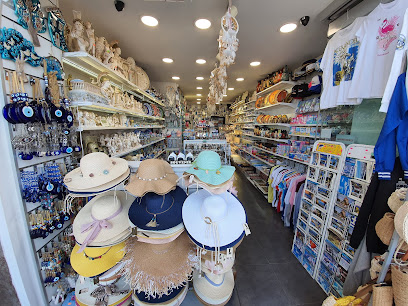
NU MODERN GREEK
Explore NU MODERN GREEK in Thessaloniki for unique souvenirs that celebrate Greek culture and craftsmanship, from ceramics to stylish jewelry.
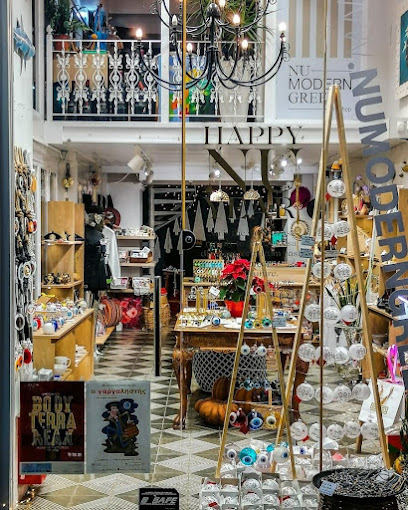
Collective Θεσσαλονίκη
Explore Collective Θεσσαλονίκη for unique fashion finds and local designer pieces in the heart of Thessaloniki's vibrant shopping scene.

Essential bars & hidden hideouts
BUTLER
Discover the perfect blend of coffee and cocktails at Butler, a cozy bar in the heart of Thessaloniki, ideal for relaxation and socializing.
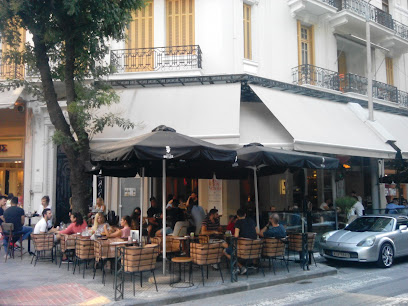
Apallou
Discover the vibrant atmosphere of Apallou, a trendy bar and café in Thessaloniki, serving delightful drinks and delicious bites.
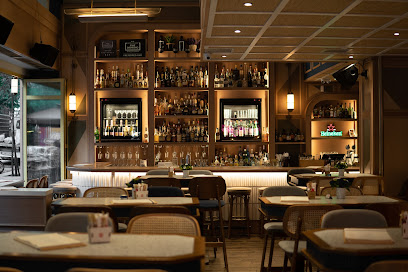
ΟΛΥΜΠΙΟΝ
Discover ΟΛΥΜΠΙΟΝ in Thessaloniki: A vibrant bar, cafe, and restaurant offering a delightful taste of Mediterranean cuisine and local culture.
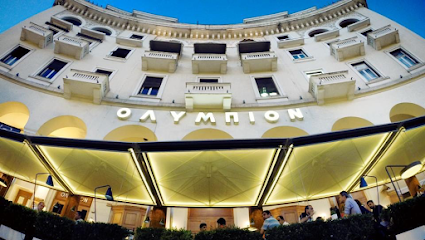
Sherlock Bar SKG
Experience the vibrant nightlife of Thessaloniki at Sherlock Bar SKG, known for its exceptional cocktails and lively atmosphere.
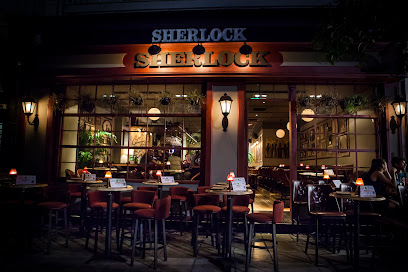
Vogatsikou 3
Discover Vogatsikou 3, Thessaloniki's stylish cocktail bar offering innovative drinks and a vibrant nightlife experience.
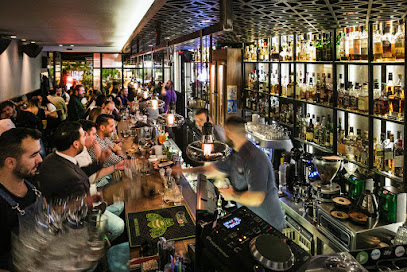
Wonderwall Fun Bar
Experience the vibrant nightlife of Thessaloniki at Wonderwall Fun Bar, where great drinks and a lively atmosphere await every visitor.
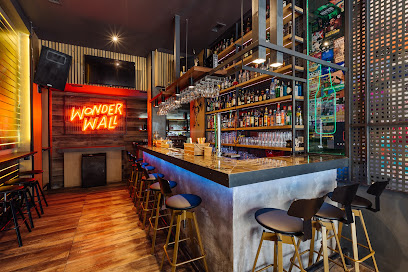
MOJO cocktail & wine bar
Discover MOJO Cocktail & Wine Bar in Thessaloniki – a fusion of exquisite cocktails and a lively atmosphere in the heart of the city.
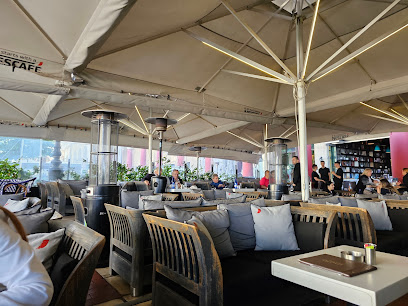
Υφήλιος Bar Nationale
Discover the vibrant nightlife and exquisite cocktails at Υφήλιος Bar Nationale, a top spot in Thessaloniki for an unforgettable experience.
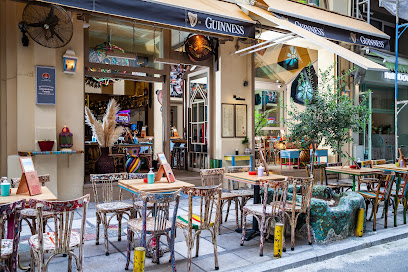
Tenoro
Experience the lively atmosphere and diverse drink selection at Tenoro, a must-visit bar in the heart of Thessaloniki, Greece.
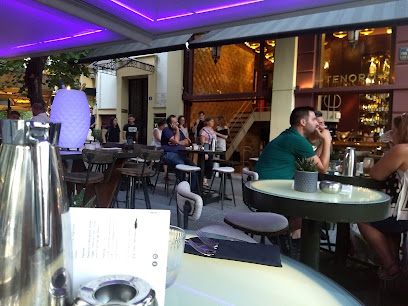
Lipuu Bar
Discover the vibrant nightlife of Thessaloniki at Lipuu Bar, where locals and visitors gather for drinks, snacks, and unforgettable experiences.
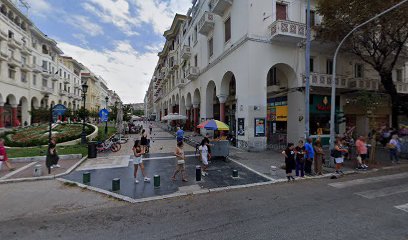
Local Phrases
-
- HelloΓεια σας
[Ya sas] - GoodbyeΑντίο
[Adio] - YesΝαι
[Neh] - NoΌχι
[Ochi] - Please/You're welcomeΠαρακαλώ
[Parakalo] - Thank youΕυχαριστώ
[Efharisto] - Excuse me/SorryΣυγγνώμη
[Signomi] - How are you?Τι κάνετε;
[Tee kanete] - Fine. And you?Καλά. Εσείς;
[Kala. Esees] - Do you speak English?Μιλάτε Αγγλικά;
[Mee-late Anglika] - I don't understandΔεν καταλαβαίνω
[Den katalaveeno]
- HelloΓεια σας
-
- I'd like to see the menu, pleaseΘα ήθελα να δω το μενού, παρακαλώ
[Tha eethela na do to menoo, parakalo] - I don't eat meatΔεν τρώω κρέας
[Den troo kreas] - Cheers!Στην υγειά μας!
[Stin yia mas] - I would like to pay, pleaseΘα ήθελα να πληρώσω, παρακαλώ
[Tha eethela na ploreeso, parakalo]
- I'd like to see the menu, pleaseΘα ήθελα να δω το μενού, παρακαλώ
-
- Help!Βοήθεια!
[Voeetheea] - Go away!Φύγε!
[Feege] - Call the Police!Καλέστε την Αστυνομία!
[Kaleste teen Astinoomeea] - Call a doctor!Καλέστε ένα γιατρό!
[Kaleste ena yatro] - I'm lostΈχω χαθεί
[Eho hatee] - I'm illΕίμαι άρρωστος
[Eeme arrrostos]
- Help!Βοήθεια!
-
- I'd like to buy...Θα ήθελα να αγοράσω...
[Tha eethela na agorasoo] - I'm just lookingΑπλά κοιτάω
[Apla keetao] - How much is it?Πόσο κοστίζει;
[Poso kostizi] - That's too expensiveΑυτό είναι πολύ ακριβό
[Afto eine poli akreevo] - Can you lower the price?Μπορείτε να ρίξετε την τιμή;
[Boreete na reeksete teen timee]
- I'd like to buy...Θα ήθελα να αγοράσω...
-
- What time is it?Τι ώρα είναι;
[Tee ora eine] - It's one o'clockΕίναι μία ώρα
[Eine meea ora] - Half past (10)Μισή (10)
[Misee (deka)] - MorningΠρωί
[Proee] - AfternoonΑπόγευμα
[Apo-yevma] - EveningΒράδυ
[Vradi] - YesterdayΧθες
[Hthes] - TodayΣήμερα
[Simeera] - TomorrowΑύριο
[Aureeo] - 1Ένα
[Ena] - 2Δύο
[Dio] - 3Τρία
[Tria] - 4Τέσσερα
[Tessera] - 5Πέντε
[Pente] - 6Έξι
[Exi] - 7Εφτά
[Efta] - 8Οκτώ
[Okto] - 9Εννιά
[Ennea] - 10Δέκα
[Deka]
- What time is it?Τι ώρα είναι;
-
- Where's a/the...?Πού είναι ένα/το...;
[Poo eine ena/to] - What's the address?Ποια είναι η διεύθυνση;
[Peea eine ee dieeftinsee] - Can you show me (on the map)?Μπορείτε να μου δείξετε (στο χάρτη);
[Boreete na mou deexte (sto har-tee)] - When's the next (bus)?Πότε είναι το επόμενο (λεωφορείο);
[Pote eine to epomeno (leoforeeo)] - A ticket (to ....)Ένα εισιτήριο (για...);
[Ena eesiteereo (ya)]
- Where's a/the...?Πού είναι ένα/το...;
History of Aristotelous Square
-
Aristotelous Square, designed in the 1910s by architect Ernst Ziller, was part of a grand urban plan following the Great Fire of 1917 that devastated much of Thessaloniki. This pivotal event prompted a significant reconstruction effort, transforming the cityscape and establishing the square as a central public space, named after the ancient philosopher Aristotle, who hailed from nearby Stagira.
-
Throughout the 20th century, Aristotelous Square emerged as a vibrant hub of Thessaloniki's cultural and social life. It became a gathering place for locals and tourists alike, hosting various events, festivals, and public performances, thereby solidifying its role as a focal point in the city's cultural landscape.
-
During World War II, Aristotelous Square witnessed significant turmoil as Thessaloniki fell under Axis occupation. The square was a site of resistance and protest, where citizens gathered to voice their opposition to the occupation, reflecting the resilience of the local population amidst hardship.
-
In the aftermath of the war, Aristotelous Square underwent further development, with new cafes, shops, and hotels emerging, contributing to the city's economic recovery. The square became a symbol of the city's resilience, showcasing Thessaloniki's ability to rebuild and adapt in the face of adversity.
-
Today, Aristotelous Square is recognized not only as a historical landmark but also as a vital part of Thessaloniki's contemporary identity. It serves as a venue for public gatherings and cultural events, bridging the rich historical past with the dynamic present of the city, and is often regarded as the heart of Thessaloniki.
Aristotelous Square Essentials
-
Aristotelous Square is centrally located in Thessaloniki, making it easily accessible from various neighborhoods. If you are coming from the train station (Thessaloniki Railway Station), you can take tram Line 1 towards the city center. Alternatively, local buses connect many areas of the city to the square. From the airport, take the airport bus (Line 78 or 78N) to the city center, which will drop you near Aristotelous Square.
-
Aristotelous Square is pedestrian-friendly, and most attractions in the vicinity can be explored on foot. The city has a reliable public transport system, including buses and trams. You can also rent bicycles from local shops or use bike-sharing services to navigate the area. Taxis and ride-sharing services are readily available for longer distances.
-
Aristotelous Square is generally safe for tourists. However, like in any major city, it’s wise to stay aware of your surroundings. Avoid poorly lit areas at night, especially around the waterfront. Pickpocketing can occur in crowded places, so keep an eye on your belongings. Areas with higher crime rates include certain parts of the Ano Poli (Upper Town), so exercise caution when exploring.
-
In case of an emergency, dial 112 for police, fire, or medical assistance. Local hospitals and clinics are available, and having travel insurance that covers medical emergencies is advisable. For minor health issues, pharmacies are dispersed throughout the city, and many offer over-the-counter medications.
-
Fashion: Do dress comfortably for walking, and consider the weather; don’t wear overly revealing clothing, especially in religious sites. Religion: Do respect local customs, and when visiting churches, cover your shoulders and knees; don’t take photos in places where it's prohibited. Public Transport: Do give your seat to elderly passengers; don’t eat or drink on public transport. Greetings: Do greet locals with a friendly smile or handshake; don’t assume everyone speaks English—learning a few Greek phrases can be helpful. Eating & Drinking: Do try local specialties like souvlaki and baklava; don’t waste food, as it is considered disrespectful.
-
To experience Aristotelous Square like a local, visit the nearby markets, such as Modiano Market, where you can sample fresh produce and local delicacies. Spend time at the cafes lining the square, where you can enjoy people-watching and savor traditional Greek coffee. Participate in local events or festivals if your visit coincides with one, as these are great opportunities to engage with the community. Don’t hesitate to ask locals for recommendations—they are often eager to share their favorite spots.
Nearby Cities to Aristotelous Square
-
Things To Do in Katerini
-
Things To Do in Serres
-
Things To Do in Larissa
-
Things To Do in Kavala
-
Things To Do in Volos
-
Things To Do in Meteora
-
Things To Do in Pogradec
-
Things To Do in Lamia
-
Things To Do in Ioannina
-
Things To Do in Gjilan
-
Things To Do in Delphi
-
Things To Do in Ferizaj
-
Things To Do in Kamenica
-
Things To Do in Alexandroupoli
-
Things To Do in Gjirokastër










